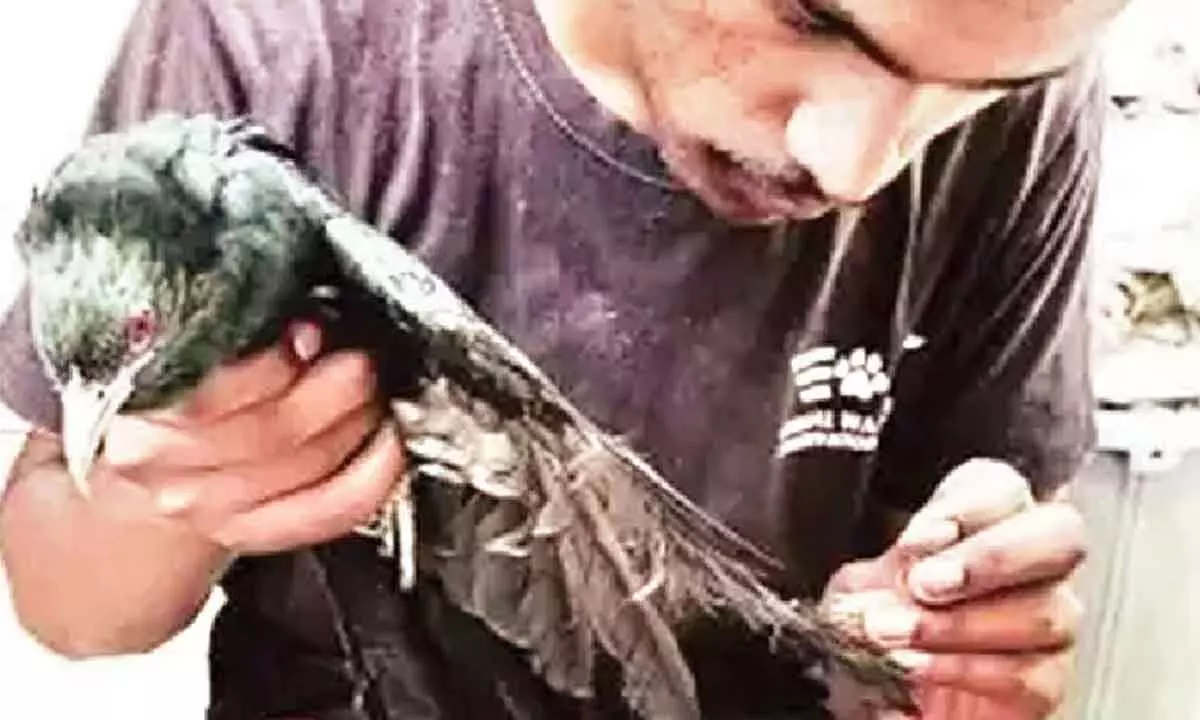Karnataka prohibits all forms of manja after PETA plea

Following an appeal from People for the Ethical Treatment of Animals (PETA) India to address bird and human deaths caused by manja, the government of Karnataka has issued an amendment to its notification under Section 5 of the Environment (Protection) Act (EPA), 1986, now requiring that only cotton thread that is “free from any sharp, metallic or glass components, adhesives, or any other thread-strengthening materials” shall be allowed for kite flying.
Bengaluru : Following an appeal from People for the Ethical Treatment of Animals (PETA) India to address bird and human deaths caused by manja, the government of Karnataka has issued an amendment to its notification under Section 5 of the Environment (Protection) Act (EPA), 1986, now requiring that only cotton thread that is “free from any sharp, metallic or glass components, adhesives, or any other thread-strengthening materials” shall be allowed for kite flying. In its appeal, PETA India requested that the state take immediate steps to address the menace of manja, including glass- and metal-coated cotton string, to prevent harm to humans, birds, and other animals as well as the environment.
To that end, Karnataka expanded its notification that previously only restricted nylon “Chinese” manja to include other harmful threads like those laced with glass or metal powder.
“We commend the Karnataka government for addressing the dangers posed by kite strings reinforced with glass and metal in addition to nylon manja,” says PETA India Senior Advocacy Officer Farhat Ul Ain. “This decisive action will save countless humans and animals, including critically endangered vultures, who are frequently maimed by these dangerous strings. Everyone can help prevent these devastating injuries and tragic deaths by opting for plain cotton kite strings or other forms of entertainment.”
Manja, in all its forms, puts humans, birds, other animals, and the environment at risk. Razor-sharp strings made of nylon or cotton threads, often reinforced with glass or metal powder, routinely injure and kill humans and birds. This year, numerous fatalities have been recorded across the country, including a 21-year-old man in Maharashtra, four people in Gujarat, a young boy in Madhya Pradesh, and a 12-year-old boy in Rajasthan whose neck was slit open.
The harmful thread also has a disastrous impact on bird populations. Manja often slashes or even severs birds’ wings and frequently cuts off their feet. Many birds escape with such severe wounds, making it impossible for rescuers to save them.
In addition to the severe risks to humans and other animals, manja poses significant environmental hazards. Using nylon and glass- and metal-coated kite strings contributes to the growing pollution problem, as these materials can persist in ecosystems for years.
Moreover, these strings can cause power failures, affecting up to 10,000 people from just one power line disruption.














